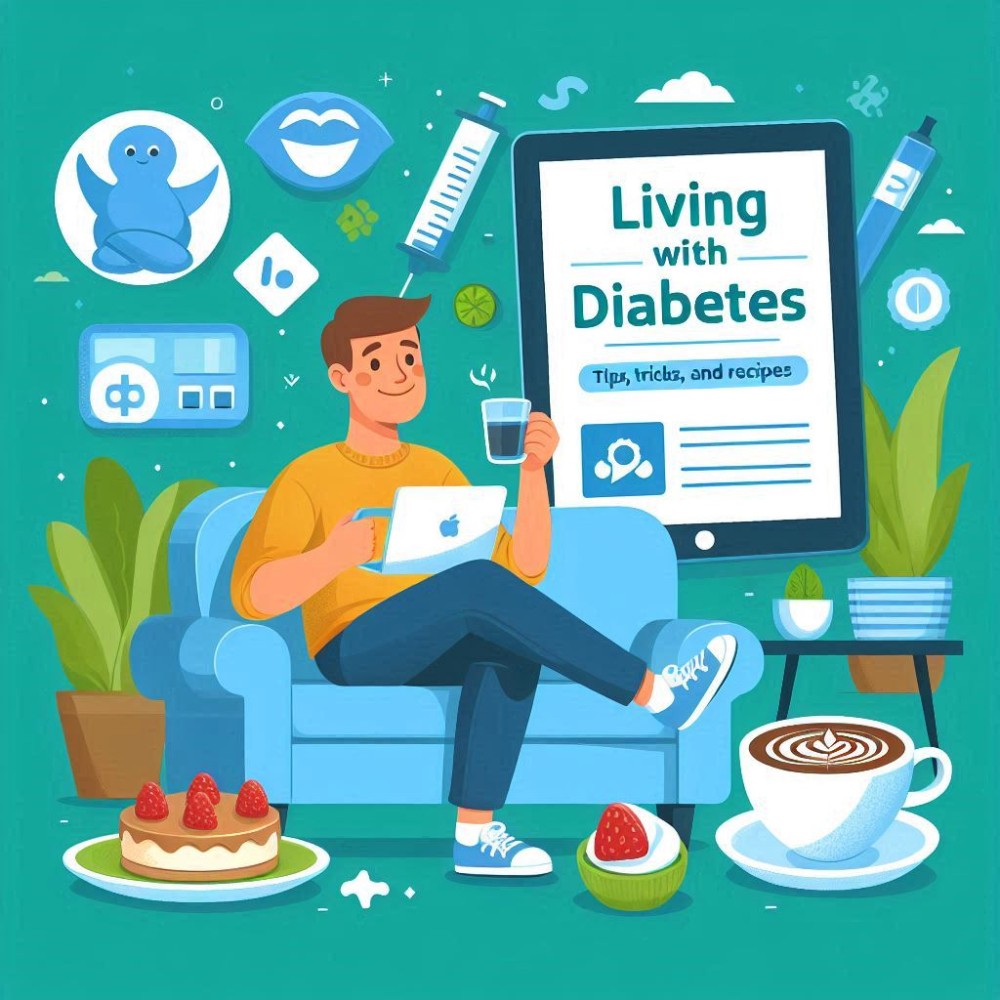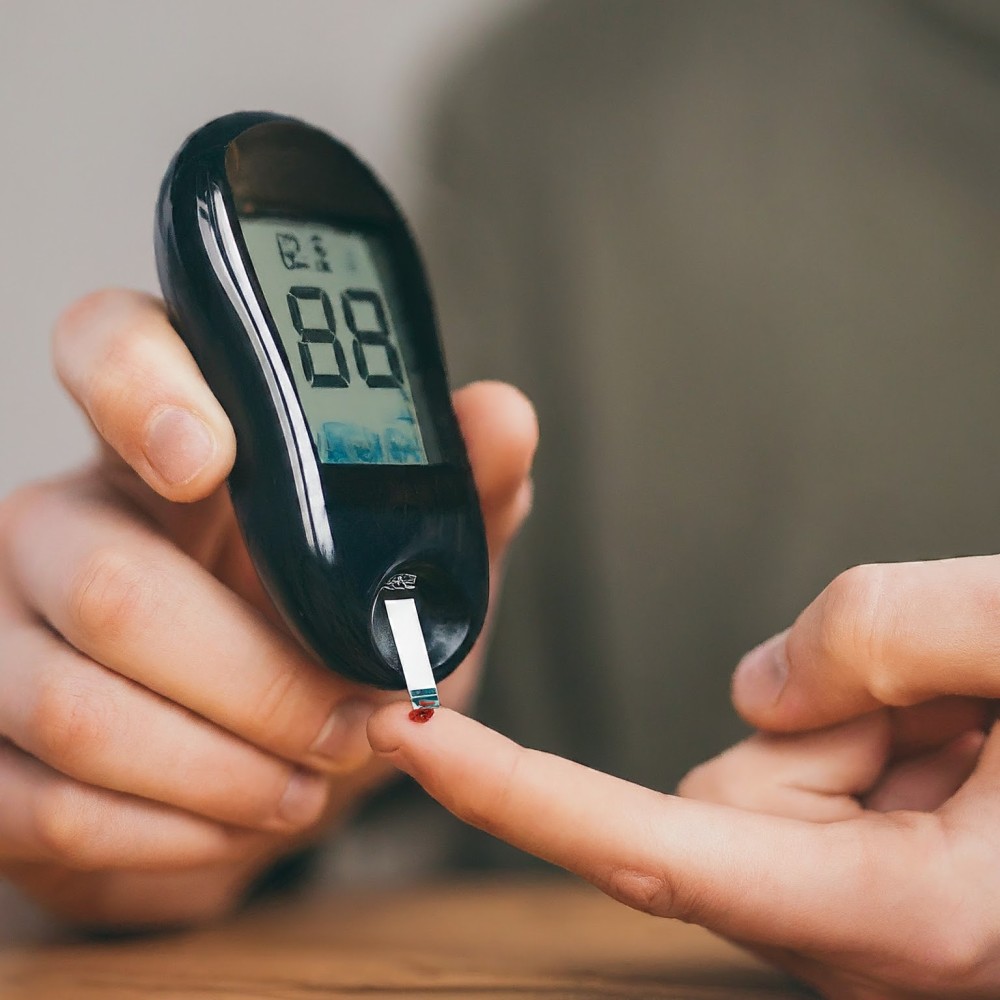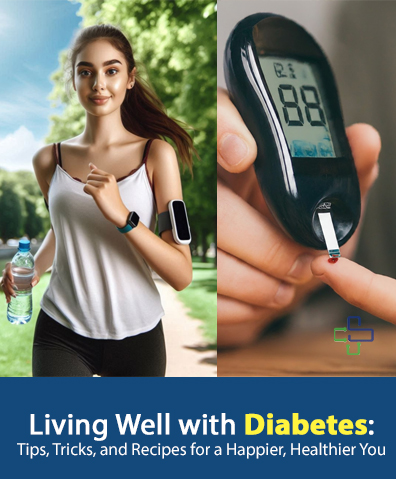Diabetes is a disease that affects many people throughout their lives This makes it difficult for our body to control blood sugar. If a person does not take care of their diabetes, it can lead to major health problems such as heart disease or kidney problems. But if doctors detect it at an early stage of diagnosis and it assures you manage it well, you can still live happy and healthy lives.
Don’t let diabetes control your life. Take charge of your health today with this essential guide, packed with practical advice and empowering information. Find practical tips and strategies to improve your quality of life and manage diabetes effectively, regardless of your experience level.

What’s diabetes all about?
It happens when your body either doesn’t make enough insulin (that’s type 1) or can’t use the insulin it does have the right way (that’s type 2). Insulin is a hormone that helps keep your blood sugar in check, so if there’s not enough of it or it’s not doing its job, your blood sugar can shoot up to some pretty risky levels.
Types of Diabetes:
- Type 1 Diabetes is an autoimmune condition in which the body attacks insulin-producing cells. This type usually develops in childhood or adolescence.
- Type 2 Diabetes is a metabolic condition in which the body becomes resistant to insulin or produces insufficient amounts of it. It is often associated with lifestyle factors and typically appears later in life.
- Gestational Diabetes is a type of diabetes that develops during pregnancy and usually goes away after childbirth.

Causes & Symptoms:
- Causes: Genetics, obesity, lack of physical activity, and autoimmune responses.
- Symptoms: Increased thirst, frequent urination, fatigue, blurred vision, slow-healing wounds, and unexplained weight loss.
Risk Factors:
- Family history of diabetes
- Being overweight or obese
- Sedentary lifestyle
- High blood pressure
- Age 45 and older (Type 2 risk)
Common Misconceptions:
- Myth 1: Only overweight people get Type 2 diabetes.
Fact: Thin individuals can also develop diabetes.
- Myth 2: People with diabetes can’t eat sugar.
Fact: People with diabetes can consume sugar, but it needs to be managed as part of their overall carbohydrate intake.
Home Diabetes Testing
Benefits of Home Testing:
Checking your blood sugar with home tests is convenient and gives you up-to-date information about your health. Regular checks help you better manage your sugar levels and avoid potential problems. For a more comprehensive evaluation, consider visiting your local best diagnostic centre in Bhubaneswar or book an online free home sample collection in Bhubaneswar for regular check-ups.

Choosing the Right Test Kit for Diabetes Test:
Choosing an appropriate diabetes home test kit is crucial. It is important to seek devices that are user-friendly, precise, and within your financial means. Additionally, certain devices provide smartphone connectivity for data monitoring, which can be particularly beneficial.
How to Perform a Home Test:
1. Wash your hands thoroughly.
2. Insert a test strip into the glucometer.
3. Prick the side of your finger with a lancet.
4. Place a drop of blood on the test strip.
5. Wait for the reading on the meter (usually within seconds).
6. Record your blood sugar levels and any relevant notes (like meal timing).
For professional evaluations, you can also search for a diabetes test near me or blood test near me for a more in-depth check-up.
Common Questions About Home Testing:
- How often should I test?
This depends on your treatment plan, but home testing is typically recommended before meals and after food to understand how your body responds. Knowing the post-lunch diabetes range is also crucial for effective management.
What should my blood sugar levels be?
The diabetes after food normal range is usually less than 180 mg/dL. Before meals, it’s generally between 70–130 mg/dL.
Managing Diabetes
Dietary Guidelines:
Managing diabetes starts with a balanced diet. Focus on whole grains, vegetables, lean proteins, and healthy fats. Limit simple carbohydrates, sugary drinks, and processed foods that can spike blood sugar. Learn about the best foods to avoid diabetes, like refined sugars and trans fats, to keep your levels stable.
- Carb counting: Monitor your carbohydrate intake and its effect on your blood sugar.
- Glycemic index (GI): Choose foods with a low GI, as they have a slower impact on blood sugar levels.
The Importance of Exercise:
Regular physical activity helps lower blood sugar by improving insulin sensitivity. Aim for at least 150 minutes of moderate aerobic activity per week, such as walking, swimming, or cycling.

Medication Options:
- For Insulin, Oral medications and Other injectables: You may consult with the best Diabetology & Endocrinology Specialists.
Seeking Professional Help
Importance of Regular Check-Ups:
While home testing is essential, regular check-ups with a healthcare provider are crucial to ensure your management plan is working. You can search for a diabetes doctor near me or a diabetes check-up near me to schedule regular visits. The best doctor for diabetes in Bhubaneswar or your local area will help tailor treatment to your needs.
Finding a Diabetes Specialist:
Consult an endocrinologist or a diabetes educator for specialized care. Searching for the best doctor for diabetes or diabetes dr near me can help you find the right professional to guide your treatment.
Have a question or personal experience with diabetes? For regular check-ups and expert diabetes care, visit the best Endocrinology Hospital in Bhubaneswar or consult the best doctor for diabetes in Bhubaneswar at SimpleeKare Hospital.
Book Your Diabetes Check-Up Today!
If you’re based in Bhubaneswar, SimpleeKare Hospital offers exclusive diabetes check-up package and free home sample collection for your convenience.
Schedule your next diabetes check-up near me at SimpleeKare Hospital to consult with one of our top endocrinologists in Bhubaneswar, visit our website at www.simpleekare.com or contact us at +91 9776414444 / +91 6371966229 for more information.

Leave a Reply